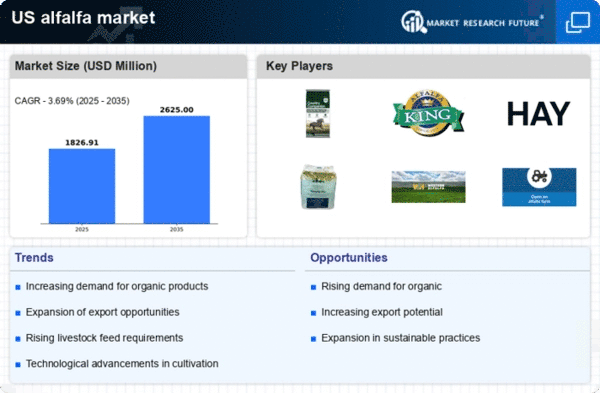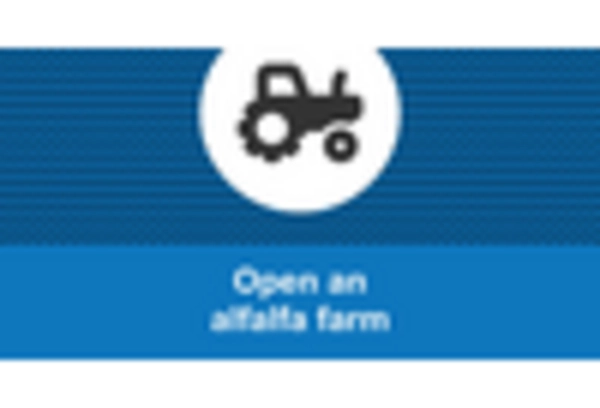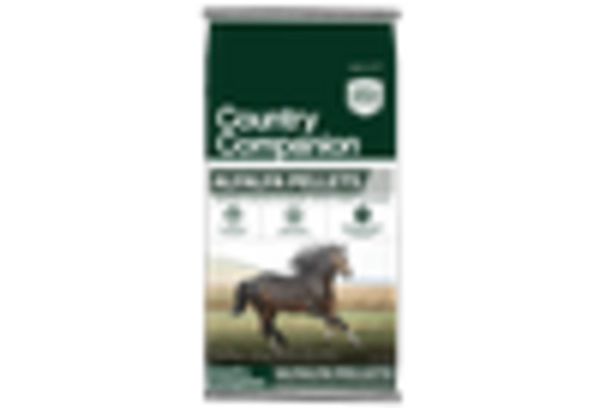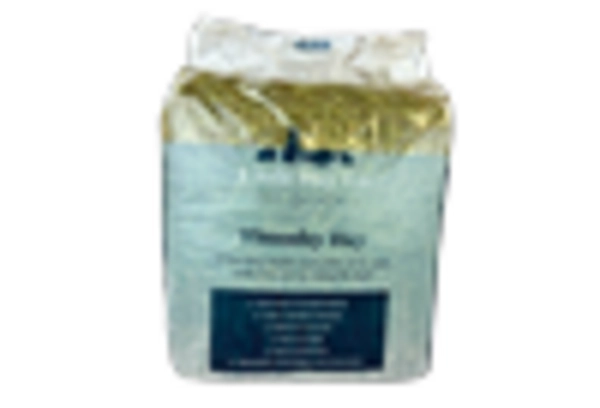Rising Livestock Feed Costs
The alfalfa market is experiencing upward pressure due to increasing livestock feed costs. As feed prices rise, farmers are seeking more cost-effective alternatives, which often leads to a higher demand for alfalfa. In 2025, the average price of alfalfa hay in the US is projected to reach approximately $200 per ton, reflecting a 15% increase from previous years. This trend indicates that alfalfa is becoming a more attractive option for livestock producers looking to manage their expenses. The alfalfa market is thus likely to benefit from this shift, as producers prioritize high-quality feed that can enhance livestock productivity while remaining economically viable.
Growing Export Opportunities
The alfalfa market is poised to benefit from expanding export opportunities, particularly to countries with increasing demand for high-quality forage. In 2025, US alfalfa exports are expected to reach $1 billion, driven by strong demand from markets in Asia and the Middle East. This growth is attributed to the rising consumption of dairy and meat products in these regions, which necessitates a reliable supply of nutritious feed. As international markets continue to open up, the alfalfa market stands to gain significantly, providing US producers with new revenue streams and enhancing their competitive position in the global agricultural landscape.
Climate Resilience and Adaptation
The alfalfa market is being influenced by the need for climate resilience and adaptation strategies among farmers. As climate variability becomes more pronounced, producers are increasingly adopting alfalfa due to its drought-resistant properties and ability to thrive in diverse soil conditions. In 2025, it is projected that 30% of US farmers will incorporate alfalfa into their crop rotations as a sustainable practice to mitigate climate risks. This shift not only supports soil health but also enhances the alfalfa market by promoting a crop that can withstand changing environmental conditions, thereby ensuring a stable supply of forage.
Increased Focus on Nutritional Quality
The alfalfa market is witnessing a heightened emphasis on the nutritional quality of feed. Livestock producers are increasingly aware of the impact that high-quality alfalfa can have on animal health and productivity. In 2025, it is estimated that 60% of livestock producers will prioritize feed quality over cost, indicating a shift in purchasing behavior. This trend suggests that alfalfa, known for its rich nutrient profile, will see increased demand as producers seek to optimize their livestock's performance. Consequently, the alfalfa market is likely to experience growth as producers invest in superior feed options that enhance overall herd health and productivity.
Technological Innovations in Cultivation
The alfalfa market is benefiting from technological innovations in cultivation practices. Advances in precision agriculture, such as soil moisture sensors and automated irrigation systems, are enabling farmers to optimize alfalfa production. In 2025, it is anticipated that 40% of alfalfa producers will adopt these technologies, leading to improved yields and resource efficiency. This trend indicates a potential increase in alfalfa production by 20% over the next five years, as farmers leverage technology to enhance crop management. Consequently, the alfalfa market is likely to see a boost in supply, meeting the growing demand for high-quality forage.
















